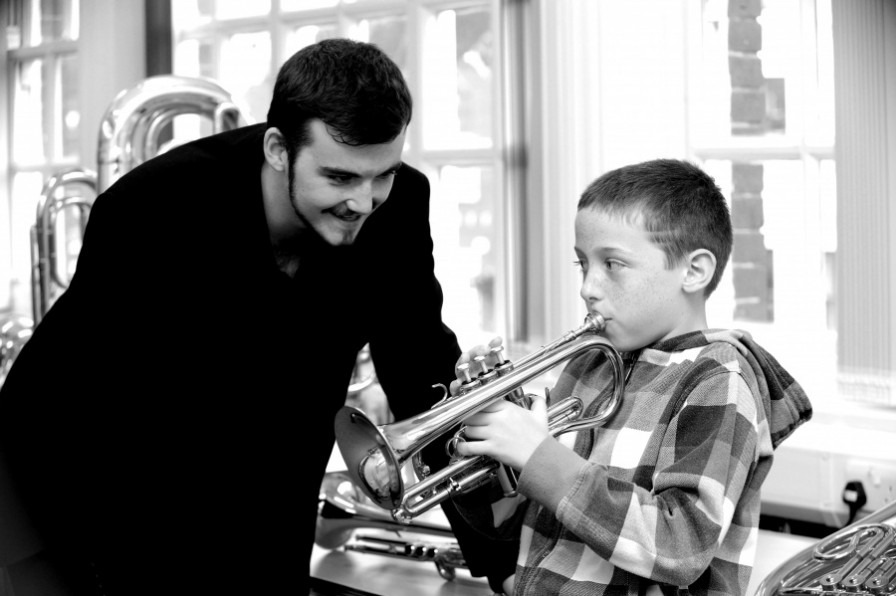My Research and Learning Internship at Youth Music

My name is Esther and for the past six weeks I have been interning full-time at Youth Music. As part of my internship I have been conducting research and writing a research paper on whether and how Youth Music funded projects support the development of self-efficacy in their participants.
Download ‘What do you think we should do?’ Exploring self-efficacy in Youth Music projects here.
I am a Psychology graduate, interested in arts participation research and so this internship was a fantastic opportunity for me to explore a rich evidence base, made up of the evaluation reports and case studies submitted by Youth Music grantholders between 2012 and 2014. I have also learnt a lot about how the evidence submitted by grantholders is used to explore the impact of the projects and how important these reports are for informing future learning and ongoing reflection.
Due to my background in developmental Psychology, I was interested in exploring how Youth Music projects support the development of personal outcomes for participants, and more specifically the intrinsic personal outcome of self-efficacy. Self-efficacy is a person’s belief in their ability to influence events that affect their lives, which has clear importance and implications for supporting young people who are facing additional challenges and often have low levels of self-belief.
My research process:
After initial research into the subject area and drawing up research objectives, I undertook qualitative analysis of evaluation reports and case studies submitted by grantholders. In doing this, I analysed what processes of learning in projects were seen to be supporting the development of participants’ self-efficacy and how self-efficacy had been measured in these project evaluations.
What I found:
Grantholders often discussed embedding the exploration of sensitive issues in lyric writing, helping young people to express and gain perspective on their issues in a safe space. Analysis also highlighted the ongoing importance of providing 1-2-1 mentoring alongside music-making activity, building a trusting relationship between mentee and mentor which allowed the underlying issues and roots causes of personal issues to be addressed. Personalised learning plans benefited personal development through allowing participant and mentor to jointly establish a set of goals and expectations, providing ongoing support while also encouraging independence. Grantholders also often spoke of the benefits of providing participants with opportunities to take on new responsibilities within the project. In particular, supported opportunities for mentees to progress to become young mentors were described as part of the legacy of many projects, as they became role models for future participants.
Measuring self-efficacy:
Out of the 61 projects reviewed that had outlined improving participants’ self-efficacy as a key project outcome, 29 described using some form of measurement to capture this outcome, with further projects indicating they were developing appropriate measurement tools. Some projects used exclusively quantitative measures (questionnaires and scales), and others used qualitative evidence to illustrate their outcomes, such as participant quotes, case studies and group reflections. The measurement of self-efficacy was most comprehensive in projects where it was measured across time points, using a mixture of qualitative and quantitative evidence, from multiple sources.
Across the different methods used to capture developments in self-efficacy, what was most important was how grantholders interpreted the evidence gathered and how they had reflected on the processes in their project that had led to these personal developments. It was also clear that where grantholders had dedicated time to developing and integrating measurements into their practice, they inherently had a greater insight into how best to support the self-efficacy of young people.
My conclusions:
Projects which had developed methods of measuring self-efficacy reported the benefits of integrating forms of measurement into already established practices in their projects, for example in young people’s personalised learning plans. As individualised plans are reviewed on an ongoing basis, this provides an opportunity to discuss progression and make observations on development that can inform quantitative measurements either by participant or mentor. Integrating the measurement of self-efficacy into personalised learning plans helped grantholders to consider the implications for future practices. It is undeniably important for grantholders to take time to reflect and provide evidence of how their project supports personal outcomes. This will give greater insight in the field, and ensure that young people are being supported to develop skills related to developing resilience to their challenging personal circumstances.
It has been a great experience becoming part of the team at Youth Music. Moving forwards I hope to apply the knowledge and insight I’ve gained from working on this project in my next steps and future projects.
Download ‘What do you think we should do?’ Exploring self-efficacy in Youth Music projects here.
